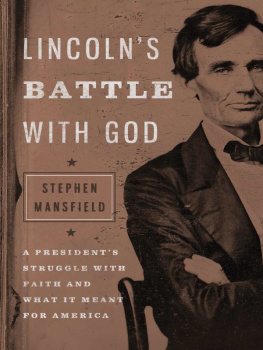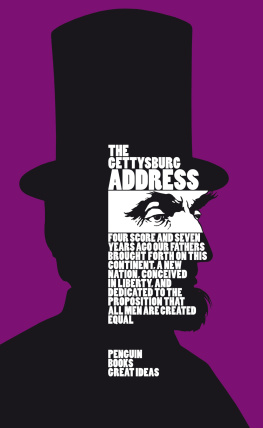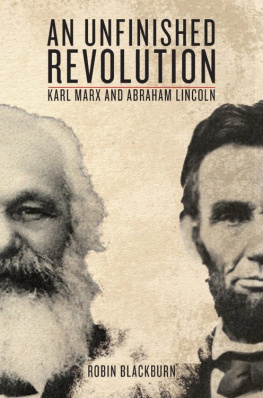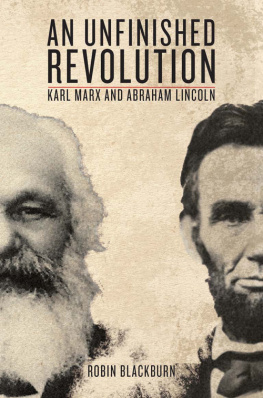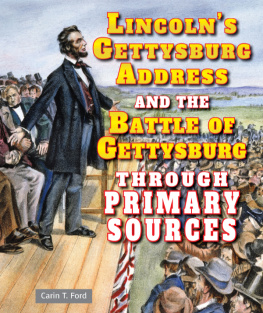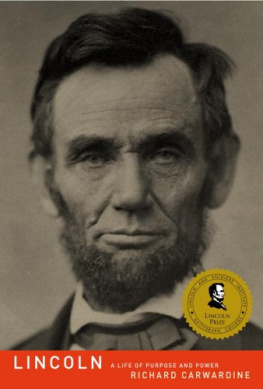Orville Vernon Burton - Lincolns Unfinished Work: The New Birth of Freedom from Generation to Generation
Here you can read online Orville Vernon Burton - Lincolns Unfinished Work: The New Birth of Freedom from Generation to Generation full text of the book (entire story) in english for free. Download pdf and epub, get meaning, cover and reviews about this ebook. year: 2022, publisher: LSU Press, genre: Non-fiction. Description of the work, (preface) as well as reviews are available. Best literature library LitArk.com created for fans of good reading and offers a wide selection of genres:
Romance novel
Science fiction
Adventure
Detective
Science
History
Home and family
Prose
Art
Politics
Computer
Non-fiction
Religion
Business
Children
Humor
Choose a favorite category and find really read worthwhile books. Enjoy immersion in the world of imagination, feel the emotions of the characters or learn something new for yourself, make an fascinating discovery.

- Book:Lincolns Unfinished Work: The New Birth of Freedom from Generation to Generation
- Author:
- Publisher:LSU Press
- Genre:
- Year:2022
- Rating:4 / 5
- Favourites:Add to favourites
- Your mark:
Lincolns Unfinished Work: The New Birth of Freedom from Generation to Generation: summary, description and annotation
We offer to read an annotation, description, summary or preface (depends on what the author of the book "Lincolns Unfinished Work: The New Birth of Freedom from Generation to Generation" wrote himself). If you haven't found the necessary information about the book — write in the comments, we will try to find it.
In his Gettysburg Address, Abraham Lincoln promised that the nations sacrifices during the Civil War would lead to a new birth of freedom. Lincolns Unfinished Work analyzes how the United States has attempted to realizeor subvertthat promise over the past century and a half. The volume is not solely about Lincoln, or the immediate unfinished work of Reconstruction, or the broader unfinished work of America coming to terms with its tangled history of race; it investigates all three topics.
The book opens with an essay by Richard Carwardine, who explores Lincolns distinctive sense of humor. Later in the volume, Stephen Kantrowitz examines the limitations of Lincolns Native American policy, while James W. Loewen discusses how textbooks regularly downplay the sixteenth presidents antislavery convictions. Lawrence T. McDonnell looks at the role of poor Blacks and whites in the disintegration of the Confederacy. Eric Foner provides an overview of the Constitution-shattering impact of the Civil War amendments. Essays by J. William Harris and Jerald Podair examine the fate of Lincolns ideas about land distribution to freedpeople. Gregory P. Downs focuses on the structural limitations that Republicans faced in their efforts to control racist violence during Reconstruction. Adrienne Petty and Mark Schultz argue that Black land ownership in the post-Reconstruction South persisted at surprisingly high rates. Rhondda Robinson Thomas examines the role of convict labor in the construction of Clemson University, the site of the conference from which this book evolved. Other essays look at events in the twentieth and twenty-first centuries. Randall J. Stephens analyzes the political conservatism of white evangelical Christianity. Peter Eisenstadt uses the career of Jackie Robinson to explore the meanings of integration. Joshua Casmir Catalano and Briana Pocratsky examine the debased state of public history on the airwaves, particularly as purveyed by the History Channel. Gavin Wright rounds out the volume with a striking political and economic analysis of the collapse of the Democratic Party in the South.
Taken together, the essays in this volume offer a far-reaching, thought-provoking exploration of the unfinished work of democracy, particularly as it pertains to the legacy of slavery and white supremacy in America.
Orville Vernon Burton: author's other books
Who wrote Lincolns Unfinished Work: The New Birth of Freedom from Generation to Generation? Find out the surname, the name of the author of the book and a list of all author's works by series.

